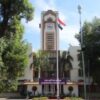No products in the cart.
Madhya Pradesh: Politics of Happiness
Aditi Maheshwari (Bhopal)
Evidently inspired by the example of the neighbouring Kingdom of Bhutan which measures national development through a Gross National Happiness Index (GNHI) and latterly by the Delhi state government which introduced happiness classes into the curricula of government schools, the Anand Vibhag (Happiness Department) of the Madhya Pradesh government has succeeded in ameliorating some of the Covid pandemic’s gloom and doom pervading the country’s geographically second-largest (308,245 sq. km) state (pop.73 million) by extending the ambit of the Happiness Department to the education sector.
First introduced by incumbent chief minister Shivraj Chauhan in 2016 to spread loosely defined happiness through narration of motivational stories, yoga and mental health advice to rural communities, the department was transformed into the Spiritual Department by the Kamal Nath-led Congress government which was voted into office in 2018. Until March 2020, the focus of the Spiritual Department was to promote intercommunal and religious harmony.
However, when the BJP was voted back to power in Bhopal in 2020 after engineering dramatic defections from the Congress, the Happiness Department with a less secular flavour was restored with the mission to uplift the spirits of the people of the state. In 2020 Aloha, an internationally accredited happiness programme, was translated into Hindi and incorporated into the Happiness programmes. Currently, the happiness programme is being disseminated in all 53 districts of the state by 55,000 unpaid volunteers.
During the past pandemic year, the department has conducted 100,000 twice-a-week online happiness programmes.
The programmes are supervised by the Rajya Anand Sansthan, an autonomous body constituted to promote the department’s objectives. The board members of the Sansthan are eminent citizens working in the areas of culture, society, psychology and academics.
“Education was one area that was left untouched by the department, so we decided to sensitise education institutions to the need for happiness, mental peace and well-being, especially in the pandemic era. Therefore for the past one year, introductory programmes have been conducted for school and higher education students in all 53 administrative blocks. Our programmes are not restricted to government institutions and are open to all. They are charged a nominal amount of Rs.200 as registration fees to meet tea-break expenses,” says Akhilesh Argul, chief executive of the Rajya Anand Sansthan.

The initial reaction to the happiness programmes being introduced in education institutions — especially in this grim pandemic era — is positive. “The department’s volunteers conducted two programmes for our faculty spread over February and March this year. The programmes included an inaugural prayer followed by yoga classes and interactive sessions with volunteers selected by the education ministry narrating motivational stories and providing pandemic management advice, group singing and poetry recitations. The happiness programmes conducted online, have undoubtedly helped our faculty to destress, refreshed our spirits and diverted attention from the pain points of the pandemic. I’m sure once normalcy is restored and the programmes are conducted on campus, they will be more rewarding,” says Dr. Pratibha Singh, principal of the Sarojini Naidu Govt. Girls Postgrad Autonomous College, Bhopal, which has an aggregate enrolment of 5,629 women students mentored by 111 faculty.
Although the Happiness Department’s introductory programmes in education institutions have been welcomed, sceptical academics and opposition parties discern clever design behind this initiative. “It is pertinent to note this programme is conducted by unpaid volunteers who are likely to be BJP and RSS foot soldiers. The design is to introduce hindutva tenets and lifestyles into local communities and education institutions. The BJP claims it is the world’s largest political party, larger than the 100 million Chinese Communist Party. The happiness programmes are part of its agenda to increase its membership,” says a Bhopal-based academic, who preferred to remain anonymous. Yet the moot point is whether politics and happiness can mix. Most academics believe they are mutually exclusive.















Add comment